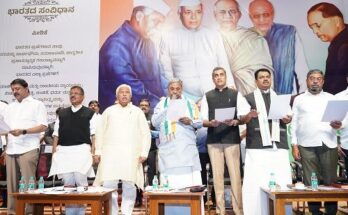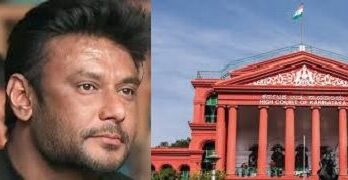With the Karnataka assembly elections looming, the Bharatiya Janata Party (BJP) is currently facing a formidable challenge of growing discontent within the party. Many prominent BJP leaders, including sitting MLAs, Legislative Council members and former MLAs, have either resigned from the party or announced that they will not contest the elections. The rejected party nomination ticket is the main primary reason behind this discontent. This rebellion is not limited to one party but all those who have been denied tickets by their party have rebelled.
The basic principle of party loyalty is given first priority in the selection of office bearers in the political sphere. But there are many instances where political leaders have chosen to leave their original political affiliation and join another political party. This is commonly called defection or party rebellion. But this has a significant impact on the political leader himself and the voters who elect him.
In recent years there have been many prominent examples of political leaders defecting in rebellion against the established norms and ideologies of their own party. Such incidents occur at any level of government, from the local to the national, and involve politicians of various political persuasions. There can be many reasons for defection or rebellion, such as inconsistencies in policy positions, personal beliefs or dissatisfaction with the existing leadership of the party. Defection of political leaders affects the voters who elected them.
Voters generally choose a candidate based on their affiliation with a party based on the party’s policies and values. When these elected candidates become leaders and defect, the concerned voter feels devastated or confused.
They may feel that their leader is abandoning his election promises and party platform. Which can transform into loss of trust and confidence in the leader. As a result, voters may revolt against the defecting leader and the party concerned. The consequences of voter revolt are significant. Hence, along with decreasing voter turnout, it increases polarization and erodes trust in the political process. Voters feel disenfranchised and disillusioned, and voter participation in democracy declines.
Sometimes insurgent voters look for alternatives outside the traditional party framework. In such a case a third leading candidate or an independent candidate emerges. Overall voter rebellion has positive effects. This insurgency also sends a message to the ruling parties and leaders to take care of their constituencies and stick to their campaign promises. Apart from this, this insurgency provides an opportunity for the electorate to get a fresh-faced leader who upholds their values and trust.



